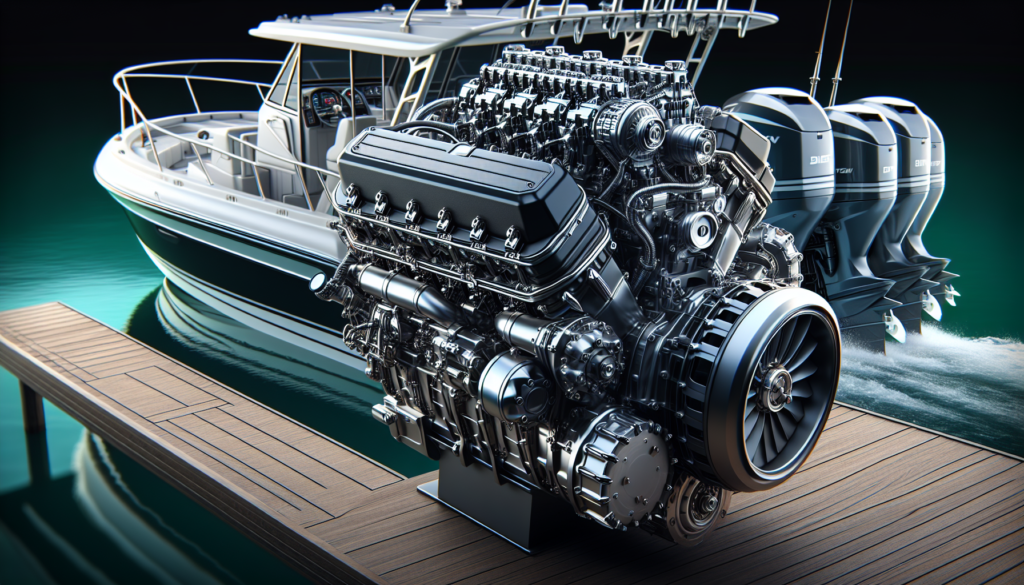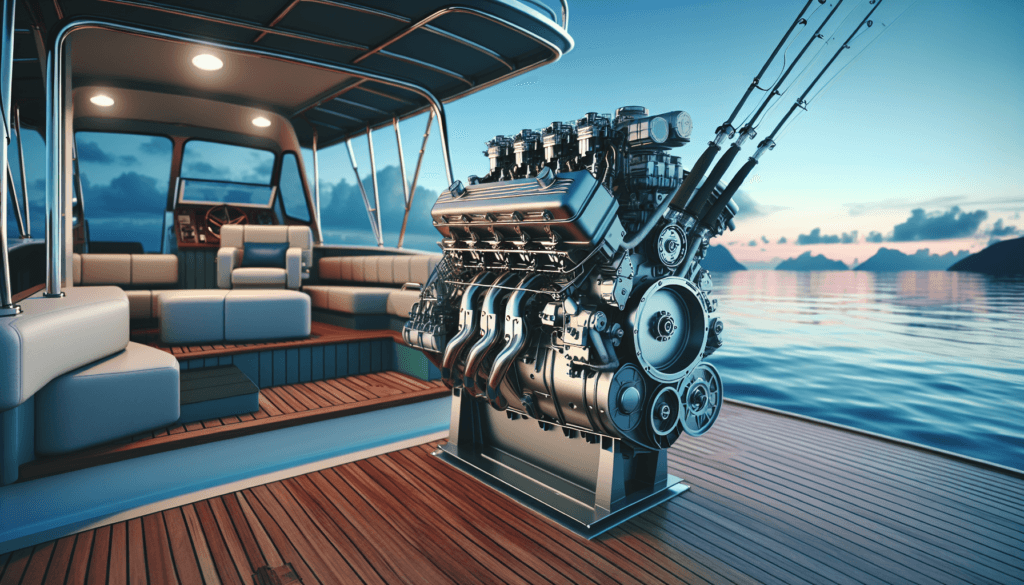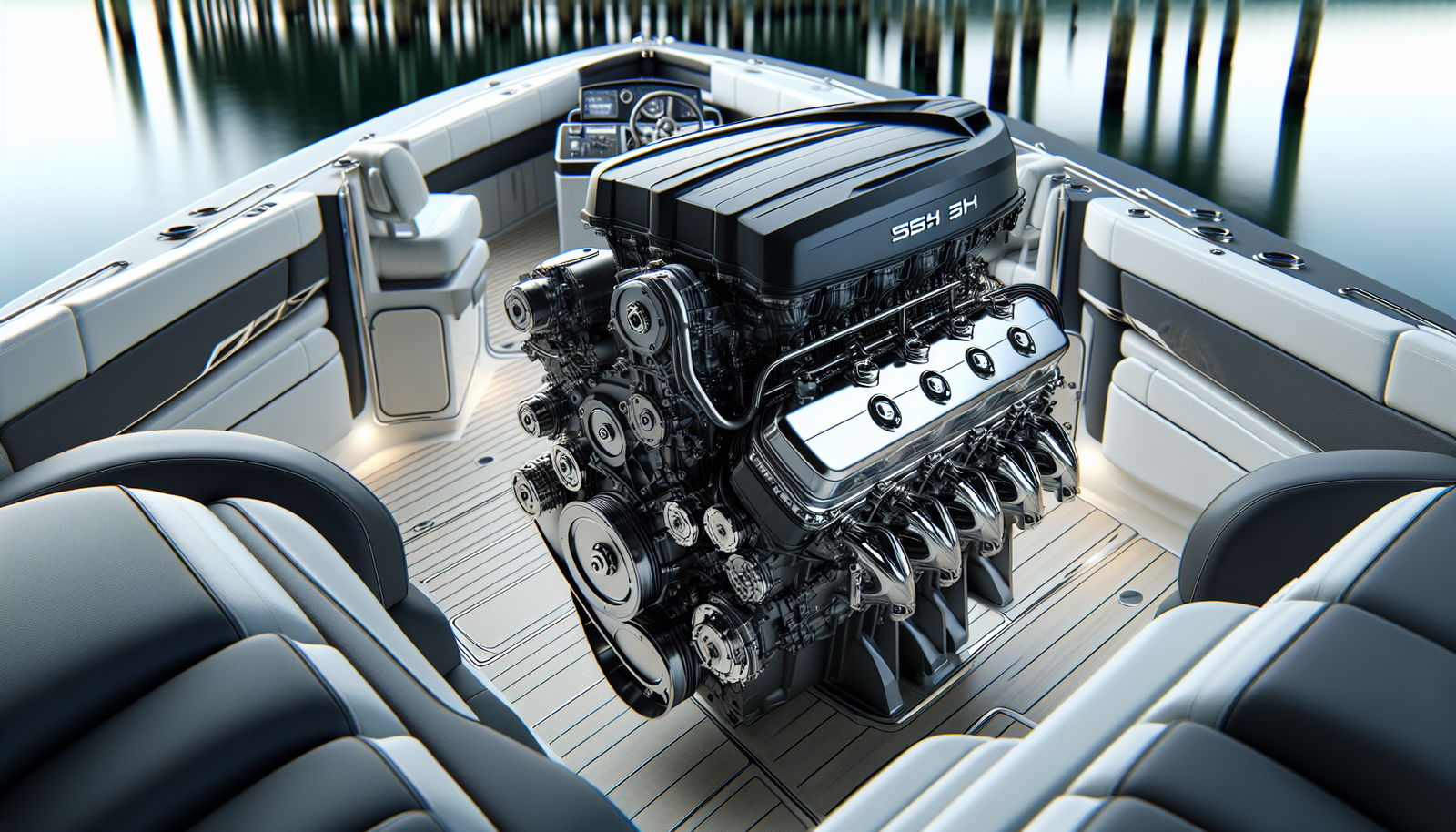Setting sail for a blissful fishing trip or a vibrant cruising adventure is your idea of a perfect day. Boating could turn from a delightful pastime to an inconvenient task without the perfect boat engine. In the article “Best Boat Engine For Fishing And Cruising”, we unlock the secret to finding the ideal engine that suits your maritime needs. You’ll discover how different engine types lend themselves to specific boating activities, helping you pinpoint your perfect fit. So, tighten your life vest and prepare to surf this wave of information that could truly elevate your boating experience.

Understanding Your Boat Engine Needs
Purchasing a boat engine isn’t as simple as just picking one out of a catalog – there are several factors you’ll need to consider. Finding the best engine really depends on understanding what you need from it.
Identifying the Purpose of Your Boat
Firstly, you’ll need to clarify the primary purpose of your boat. Are you looking to use it for intensive, long-distance cruising or simply for relaxed fishing trips? Or maybe a combination of both? The answer will greatly affect the type of engine you should go for. For instance, engines built for speed may not work exceptionally well for slow, quiet fishing trips, while engines designed for steady trips might not give you the thrill of speed.
Balancing Power and Fuel Efficiency
The next thing to ponder is power versus fuel efficiency. If you need a powerful engine to handle choppy waters or to pull water skiers, for instance, know that this could result in less fuel efficiency. However, if you mostly cruise on calm seas and speed isn’t your priority, then an engine with great fuel efficiency will be a more suitable option.
The Impact of Boat Size on Engine Choice
Lastly, the size of your boat is crucial in determining the right engine. If your boat is large, a small engine won’t cut it – it might not have the power to cope with the size and weight of your boat particularly in harsh weather conditions. Similarly, a small boat would be very inefficient with a large engine. It’s all about striking the right balance.
Outboards: The Basics and Benefits
Outboard engines sit on the back of the boat and provide direct propulsion, steering, and control. Let’s explore what they have to offer.
What is an Outboard Engine?
An outboard engine, recognisable by its propeller and steering mechanism, is a self-contained engine system mounted on the exterior of the boat. It combines an engine, gearbox, and propeller into one unit.
Pros and Cons of Outboard Engines
Outboard engines are quite popular because they’re easy to maintain, offer good maneuverability, and can be lifted out of the water, reducing exposure to corrosive or marine growth, which enhances its longevity. However, they can be noisy and vibrate a lot. The location of the engine at the stern takes up a lot of space, which could be used for seating or storage.
Best Outboard Engine Models for Fishing and Cruising
Some of the most popular Outboard engines include the Yamaha F25 – a perfect one for small boats used for fishing and short cruises. For bigger boats, the Mercury Verado 350 stands out with its superior performance and durability.
Inboards: The Basics and Benefits
An inboard engine is housed inside the boat, typically under the deck, delivering power to a fixed propeller at the stern via a drive shaft.
What is an Inboard Engine?
Inboard engines, unlike outboards, are set within the hull of the boat, protruding out the stern to drive a propeller. They are split between the drive unit and the engine inside the hull.
Advantages and Disadvantages of Inboard Engines
Inboard engines provide a lower center of gravity for your boat and are quieter and smoother in operation. They are great for larger boats as they provide a lot of power, but they are also pricier to install and maintain. Plus, since they are built into the hull, it could be harder to do repairs or replacements.
Top Inboard Engine Models for Fishing and Cruising
The Volvo Penta D13-1000 is a highly recommended inboard engine for larger fishing boats and yachts owing to its raw power and reliability. Crusader Engines Captain’s Choice 6.0 MPI, on the other hand, is a more budget-friendly choice that offers excellent fuel efficiency and performance.
Diesel Engines: The Basics and Benefits
Diesel engines are a type of internal combustion engine that uses diesel fuel to operate. Due to their robust construction, they are typically very durable and have long engine lives.
Understanding Diesel Engines
Diesel engines work by compressing the air first and then injecting the fuel. This results in the fuel-air mixture becoming hot and igniting spontaneously, a process that generates noticeable power and torque.
Pros and Cons of Diesel Engines
The main advantage of diesel engines is that they are highly fuel-efficient, reliable, and have low operating costs compared to petrol engines. They also have excellent torque, making them ideal for towing heavy loads. However, they are generally louder, heavier, and emit more pollutants than petrol engines.
Recommended Diesel Engines for Fishing and Cruising
Cummins MerCruiser Diesel QSD 4.2-350 is an efficient and powerful diesel engine favored by many in fishing and cruising circles. For those considering a more environmentally-friendly option without compromising performance, Volvo Penta D11-725 is a great alternative as it consumes less fuel and produces fewer emissions.

Petrol Engines: The Basics and Benefits
Petrol engines are the most common types of internal combustion engines and use gasoline fuel to operate.
Understanding Petrol Engines
Petrol engines operate by a process where the air-fuel mixture is ignited by a spark from a spark plug.
Advantages and Disadvantages of Petrol Engines
Petrol engines have a high power-to-weight ratio, making them great for speed boats. They’re also usually lighter, quieter, and cheaper to buy than their diesel counterparts. However, they are less fuel-efficient and usually have shorter engine life spans compared to diesel engines.
Top Petrol Engines for Fishing and Cruising
Mercury Verado 400R and Yamaha F200 are both highly-rated petrol engines acknowledged for their speed, performance, and smooth, quiet operation – excellent choices for recreational fishing and cruising boats.
Stern Drive Engines: The Basics and Benefits
Also known as inboard/outboard engines (I/O), stern drive engines combine elements of both inboard and outboard engines for a unique blend of benefits.
What is a Stern Drive Engine?
A stern drive engine is essentially an inboard engine that delivers power to an outboard drive connected to the transom.
Pros and Cons of Stern Drive Engines
Stern drives provide the power and stability of inboards with the maneuverability of outboards. They’re also great for water sports like water skiing because of their speed and propulsion. On the flip side, they take up a lot of space and can be expensive to maintain.
Best Stern Drive Engine Models for Fishing and Cruising
The MerCruiser Bravo Three, known for its performance and durability, is an excellent choice for fishing and cruising. Another good choice is the Volvo Penta Duoprop, praised for its superb fuel efficiency and reliability.

Jet Engines: The Basics and Benefits
Jet boat engines offer a whole different method of propulsion, pushing water out the back, much like a jet ski.
Understanding Jet Engines
Jet boat engines work by sucking water into a pump and expelling it out the back through a nozzle, propelling the boat forward.
Advantages and Disadvantages of Jet Engines
The main benefit of jet engines is that they offer increased maneuverability and safety as there are no external propellers. They are also great for shallow waters. However, they are less efficient at low speeds and can use more fuel than other engines.
Recommended Jet Engines for Fishing and Cruising
If you’re considering a jet engine, consider the Rotax Jet Propulsion System, known for its direct power and agility, or the Yamaha 212X, popular for its top-notch performance.
Electric Boat Engines: The Basics and Benefits
With the world pushing for more eco-friendly solutions, electric boat engines have been gaining attention.
What is an Electric Boat Engine?
An electric boat engine utilizes stored electrical energy in batteries to power an electric motor that drives the propeller.
Pros and Cons of Electric Boat Engines
These engines are silent, produce zero emissions, and require minimal maintenance. Additionally, electricity is cheaper than most fuels. However, battery range can be a concern, particularly for longer cruises, and charging infrastructure is still developing.
Best Electric Boat Engine Models for Fishing and Cruising
The Torqeedo Deep Blue i-Series is a standout selection for its impressive performance, range, and integration with a solar charging system. The EP Carry Electric Outboard Motor is also a popular choice for smaller craft, thanks to its portability and user-friendly nature.
Maintenance and Care for Boat Engines
Like any other machine, boat engines need regular care to run efficiently and last longer.
Routine Maintenance Tasks
Basic maintenance tasks include regular oil changes, coolant checks, belt inspections, and keeping the engine clean from any debris or dust that may affect its performance.
Signs Your Engine Needs Attention
Listen to your engine – any irregular sounds, difficulties in starting, or black smoke are warning signs. Watch for unexpected consumption of oil or coolant, which might indicate a leak.
Maximizing the Lifespan of Your Boat Engine
Using high-quality fuel, not overloading your boat, and minimizing engine idling can greatly increase the lifespan of your engine. Keep a regular check on the engine’s condition and tackle small issues before they become significant problems.
Tips for Buying Boat Engines
Now let’s conclude with some advice to guide you when shopping for boat engines.
Considerations when Purchasing a Boat Engine
Look beyond the upfront costs, consider fuel efficiency, maintenance, and potential repair costs too. Prioritize engines that perform well according to your needs, whether it’s speed, power, endurance, or quiet operation for fishing.
Where to Buy a Boat Engine
Consider buying from reputable dealers authorized by the engine manufacturer. Also, think about proximity – wherever you buy, there should be service centers or mechanics nearby familiar with your engine brand.
Understanding Warranties and Guarantees
Finally, don’t overlook the warranty. The warranty can tell you a lot about the manufacturer’s faith in their product. Besides the length of the warranty, read the fine print to know what is included and what is not.
Remember, a well-chosen boat engine can greatly enhance your fishing, cruising, or mixed-purpose seafaring experience. It’s all about picking one that aligns with your needs and expectations. Happy boating!

